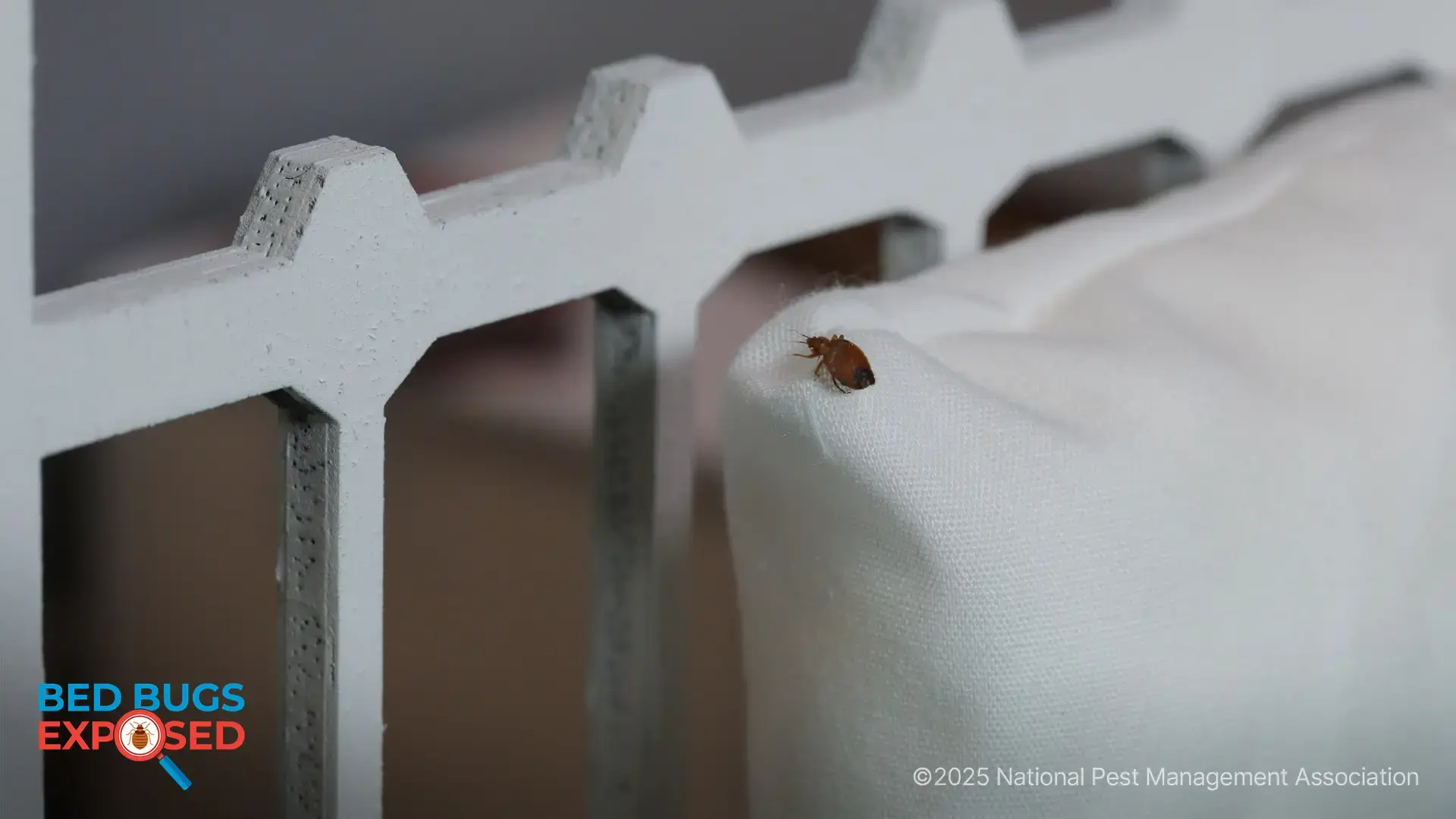The Savvy Summer Traveler
Learn How to Keep Bed Bugs From Ruining Your Vacation
Summer is officially here and millions of Americans have images of vacations dancing in their heads. Many things can and do go wrong on vacations, from lost luggage to a mean sunburn, most getaways are hardly ever foolproof. However, nothing can wipe out relaxation and pile on stress and anxiety more than bringing bed bugs home with you. Bed bugs feed on human blood and are best known for their uncanny hitchhiking abilities. So before any of these pests ride home in your suitcase, read on to learn what savvy travelers can do.
Before you hit the road, sky or rails, it’s important to be aware of ways to protect yourself and your family while traveling. Whether it’s during transit, your hotel stay or upon your return home, when it comes to bed bugs – prevention is the BEST cure. It may be one more thing to add to your vacation checklist, but it’s one that can make a difference.

Are bed bugs really in hotels?
Unfortunately, yes! These pests don’t differentiate between a 5-star hotel and cheap, low amenity motel. To them, a bed is a bed as long as a blood meal is sleeping in it (and yes, that means you!). A 2011 NPMA and University of Kentucky survey found that 80 percent of pest professionals have treated bed bugs in hotels and motels. Although bed bugs are found in numerous places other than hotels, most travelers will stay in a hotel at one point or another during their vacation, putting themselves at a higher risk of picking up these hitchhiking bugs.
Once inside a hotel or home, bed bugs spread rapidly from room to room - through pipes, in vacuum cleaners, on clothing and luggage. In a hotel, bed bugs can even spread to neighboring rooms, since guests may end up moving to another room and because they can crawl through the walls between rooms.
What should I look for in a hotel?
- Upon entering the room, put your suitcase in the bathroom as that is the safest place for it. Bed bugs are least likely to hide in a bathroom.
- Pull back the sheets and inspect the mattress seams, particularly at the corners, for pepper-like stains or spots or even the bugs themselves. Adult bed bugs resemble a flat apple seed.
- Check behind the headboard, inside couch and chair cushions, behind picture frames and around electrical sockets.
- If you see anything suspect, notify management and change rooms or establishments immediately.
- If you do need to change rooms, be sure that you do not move to a room adjacent and/or directly above/below the suspected infestation. Bed bugs can easily hitchhike via housekeeping carts, luggage and even through wall sockets. If an infestation is spreading, it typically does so in the rooms closest to the origin.
- Even if you determine your room is clear of any bed bugs, consider placing your suitcase in a plastic trash bag or protective cover during the duration of your trip to ensure that bed bugs cannot take up residence there prior to departure.
What should I do when I return home?
- Inspect your suitcases before bringing them into the house. Your neighbors may give you strange looks, but better safe then sorry. Take the opportunity to educate them as to why you’re unpacking your suitcase on the front porch. You might save them from a bed bug infestation in the future.
- Vacuum your suitcase thoroughly before storing it. Consider using a garment hand steamer to steam your luggage, which can kill any bed bugs or eggs that may have hitched a ride home.
- Wash and dry all of your clothes - even those that have not been worn - in hot temperatures to ensure that any bed bugs that may have made it that far are not placed into your drawers/closet.
- Keep clothes that must be dry-cleaned in a plastic bag and take them to the drycleaner as soon as possible.
How will I know I have bed bugs?
Maybe you didn’t check the hotel room as thoroughly as you thought or perhaps you were too tired to vacuum your suitcase. Perhaps you did everything right but a few days after you came home, you wake up with red itchy welts on your body and notice the telltale pepper-like stains on your sheets. A few bed bugs snuck by you and have made themselves at home. Don’t panic! Although bed bugs are a difficult pest to treat, pest professionals have many treatment options available to them and are successful in eliminating infestations.
The key is to begin treatment as soon as infestation is suspected or discovered. Bed bugs are not a DIY pest, as evidenced recently by an Ohio State University study and treatments should be left to licensed and experienced pest professionals. If you suspect a bed bug infestation contact a pest professional.
Don’t let this happen to you!

Learn About Rodents
Rodents invade millions of homes each winter. Learn more about them!

NPMA's Bug Barometer Forecast
The latest Bug Barometer® forecast from the National Pest Management Association reveals what homeowners across America can expect from pest activity this fall and winter.

NPMA's Bed Bugs Exposed Project
Check out NPMA's Bed Bugs Exposed project to learn more about this hitchhiking pest and how to prevent an infestation at home.
Find a PEST PRO in your area

Learn About Rodents
Rodents invade millions of homes each winter. Learn more about them!

NPMA's Bug Barometer Forecast
The latest Bug Barometer® forecast from the National Pest Management Association reveals what homeowners across America can expect from pest activity this fall and winter.

NPMA's Bed Bugs Exposed Project
Check out NPMA's Bed Bugs Exposed project to learn more about this hitchhiking pest and how to prevent an infestation at home.
